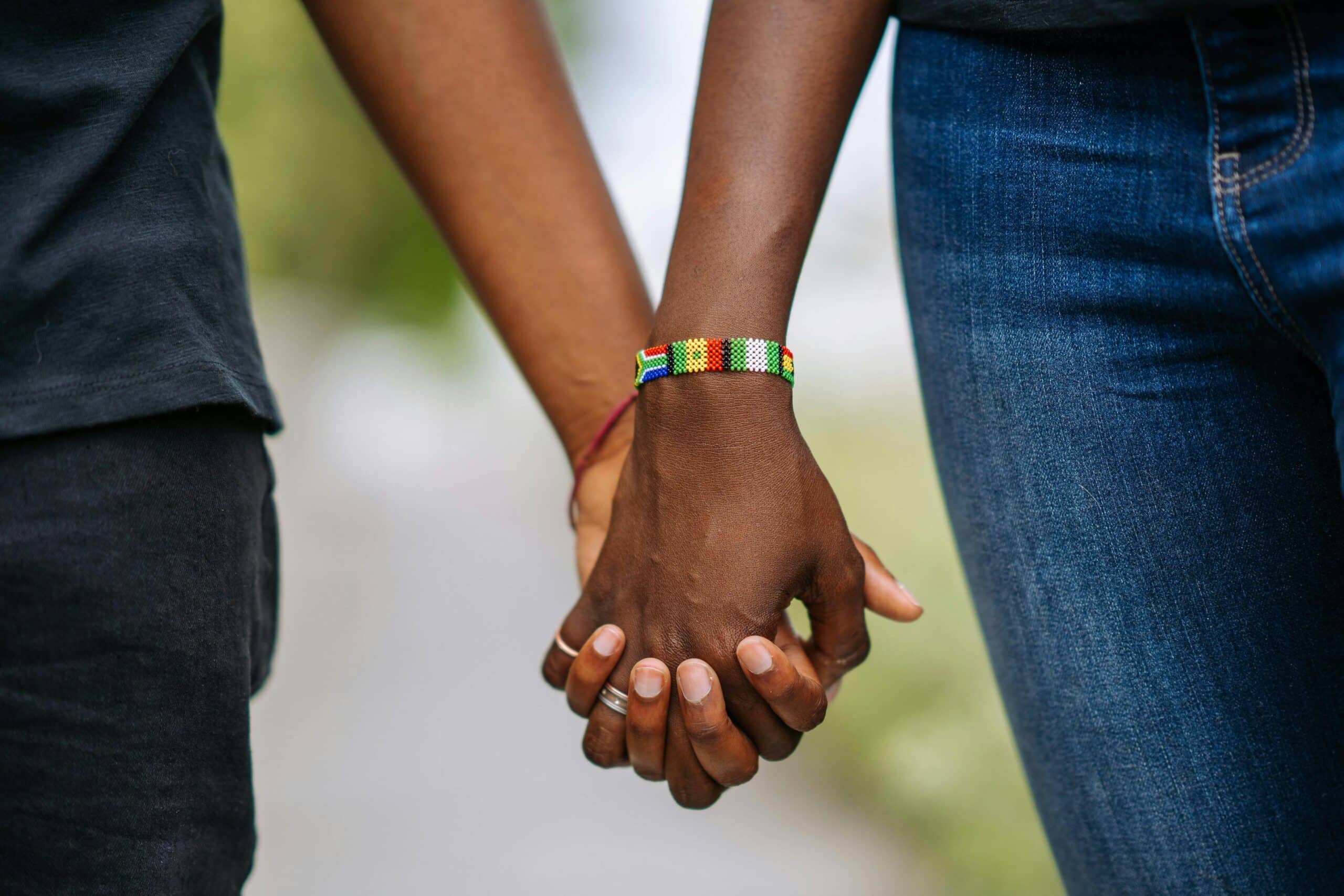Love Addiction: Are You Addicted to Love?

Does falling in love make you miserable? If finding a new romantic partner leads you to obsessiveness, unreasonable expectations, low self-esteem, and mood swings, and an ultimate breakup, you may be suffering from love addiction.
Yes, you can be addicted to love. There are articles that confirm this. It’s a serious issue that can prevent the person affected from enjoying positive romantic relationships. If your personal romantic relationships crash and burn due to your inability to stop sabotaging yourself, keep reading. We’re going to explore what love addiction is, the symptoms, and how you can learn to navigate the emotional challenges of maintaining healthy relationships.
What is Love Addiction?
First and foremost, it is a behavioral addiction, just like the dependence on addictive substances of drugs or alcohol. The difference is that love addiction is an emotional dependence. While substance addictions are recognized mental disorders, addictive love is not a recognized mental disorder.
People who wonder “What is love addiction” often confuse it with sex addiction, but the two are distinct from one another. So, let’s first take a look at the difference between the two.
Difference Between Love and Sex Addiction
Before you read through this section, have a look at this video that describes the difference.
Love Addiction
Love addiction is a syndrome that leads a person to become obsessed with a romantic partner and engage in unhealthy behaviors as a result of that. Where falling in love generally leads most people to be happier, the love addict can make themselves, their new partner, and others absolutely miserable because of their unhealthy decisions and behaviors.
People struggling with love addiction often become fixated and controlling. Of course, their off-putting behavior often leads to the end of romantic relationships. When these romantic partnerships do continue, they are often rife with conflict and tension, even becoming toxic or abusive relationships. In any case, the cycle of love addiction leads to low self-esteem. This can lead to the individual who is addicted to love seeking out validation through even more unhealthy romantic relationships.
It is important to note that while most articles on this topic focus on romantic partnerships, this problem can be seen in any human partnership. Some people may become obsessed with the lives of their children. But for the purposes of this article, we’ll deal only with romantic love.
Like substance addictions, love addiction involves the uncontrollable need to be in intense romantic love with someone at all times. Love addicts must have a romantic partner at all times – it is their “fix” so to speak. They are engaged in reward-seeking behavior all the time, and that reward is falling in love, forming unhealthy attachments, and, in so doing, ultimately destroying the relationship with their obsessive and controlling behaviors.
Behaviors of Love Addicts
- Exhibit extreme passion for their love partner
- Love bomb their partners to the point of being harassers or stalkers
- Feel desperate to know what their partner is doing at all times and want that partner to make them first in their lives.
- Cannot develop other interests because their relationships with romantic partners consume all of their waking moments.
- Immediately seek a new intimate relationship when a current partner cannot deal with the obsessions and becomes emotionally unavailable or worse, dumps them. Must have a love partner at all times- it’s their “fix.”
- Other aspects of their lives are ignored with negative outcomes on the job and in family and social relationships.
- Don’t recognize their addiction as an immature love with their reward system as the path to self-worth and well-being.
Sex Addiction
Again, sex addiction, like all other addictions, requires the addict to seek out sex at all costs, even though there are negative consequences that impact their well-being. And, like love addiction, it is not classified as a mental disorder, although addictive personality disorder in general is. Sex addictions are not about romantic relationships. The need for constant sexual activity is the addiction, and getting sex as often as possible is the “fix.”
Given that sex addiction is like all other harmful addictions, the behavior of the addict impacts not just their own well-being but that of those around them too. Reward-seeking behavior consumes them to the point that all other relationships suffer. Here are common behaviors of the sex addict:
- Intrusive thoughts and fantasies about sex that interfere with normal daily activity – work, family, outside interests and/or hobbies
- obsessive sexual activity with multiple partners, even strangers
- Lying to friends, family, and partner to cover up the behavior (e.g., working late, feigning illness, etc.).
- Getting into risky and dangerous situations and foregoing protective self-care (condoms, etc.).
- Inability to control thoughts or behavior. The “drug use” here is sex, sex, sex.
It’s important to note here that great and frequent sex between partners, especially in the honeymoon phase of any intimate relationship, is normal and healthy. Sex addiction behavior happens outside of the relationship with a partner.
It’s also important to note that sex addicts can easily succumb to other addictions when they pursue sex with unsavory partners in bad environments, including alcohol and drug use.
Now that you understand the difference between love and sex addiction, let’s return the focus to love addiction.
Is Love Addiction a Real Mental Health Disorder?
According to the European Journal of Psychiatry, love addiction is not officially recognized as a mental health disorder in the DSM. However, research shows that it meets the challenges for recognition as an independently diagnosed mental illness. You may be able to find other articles with more data to confirm this.
The research published in the European Journal of Psychiatry also indicates that the best treatment results may include certain medications such as mood stabilizers to help deal with unhealthy actions. Other forms of treatment include CBT (Cognitive Behavioral Therapy). However, these are generally given to the person because they have some other diagnosable condition such as depression or other issues.
To summarize, love addiction may not be an officially recognized illness or condition. However, it is regarded to be real enough and worthy of research and treatment by scientists and mental health professionals. If you suspect you have a love addiction, there are pathways to receive treatment for that and develop strategies to ensure better mental health.
What are The Symptoms of Love Addiction?
Love addiction can manifest itself in different ways for different people. However, the common theme is that people who struggle with this addiction become fixated on their love interests. This can lead to alarming activities such as texting and calling partners several times each day and doing other things to make them feel suffocated. Stalking is often an extreme expression of love addiction.
Take a look at the following symptoms. The list isn’t complete, but if you notice these or similar behavioral patterns, you may be struggling with love addiction:
- You feel dependent upon your partner despite being a capable individual
- You react to romantic rejection by becoming fixated
- You feel unreasonably strong feelings of depression or frustration when someone isn’t interested in you
- You feel lost when you aren’t romantically attached
- You make decisions that are detrimental to your well-being when you are attached romantically (e.g.: quitting jobs or moving to be near someone you just met)
- You neglect your family and close friends
- You can’t break away from unhealthy or abusive partners and stay in abusive relationships just to get the intense pleasure of being loved, even though the relationship is fully unhealthy.
- You have taken extreme steps to maintain an unhealthy partnership such as tolerating abuse or humiliation
- You obsessively think about and track new partners
There are other things to consider as well. Have you ever become so obsessed with a romantic partner or handled a breakup so poorly that you used drugs to cope? Has more than one partner left you because you were smothering or obsessive? Has anybody ever had to take action to get you to leave them alone? This might include legal action such as no-contact orders, but also changing their numbers or blocking you on social media. These are all signs that love addiction could be a problem for you and that it is time to get help.
Why Love Addiction Can Destroy a Romantic Partnership
Healthy couplings aren’t built around obsession and dependence. Even if it simply comes off as intense interest at first, there are only two outcomes for a coupling that is impacted by love addiction.
The first is that the partner who is not struggling with an addiction to love is going to realize that the situation is unhealthy if not dangerous. They will then leave the relationship. While this is no doubt the right decision for them, the person with love addiction is left dealing with the fallout.
The other, often worse outcome, of love addiction is that the people impacted stay in the relationship. This is problematic, because that partnership is often combative, unhealthy, and may even escalate to violence.
Remember that someone who is addicted to love isn’t just prone to engaging in actions that are disturbing. They are also likely to be victimized by a love interest who is willing to exploit their inability to leave unhealthy relationships. This can manifest as emotional or financial abuse, infidelity, or even matching the compulsive actions of the person struggling with love addiction.
What are The Other Dangers of Love Addiction
Love addiction doesn’t just impact people in a romantic relationship. It has rippling effects that can cause harm to other people and make it difficult for the person who is struggling to lead a normal life.
Difficulty at Work
The level of fixation that love addiction involves can make basic functioning difficult. Someone struggling with love addiction may miss work to spend time with the object of their obsession or track their movements. When they are at work, their performance may be poor as they struggle with fixation, sadness, anxiety, or the pain of ended relationships and resulting self-esteem issues.
Inability to Remain Connected to Family and Friends
Love addiction impacts the way that you relate to all of your personal relationships. This mental health issue often leaves the people who care about you feeling frustrated, helpless, and even neglected. They are often the ones dealing with their loved one’s mood swings, and the fallout resulting from their obsessive actions.
Physical Health Impacts
Mental health issues like love addiction often lead to physical symptoms. The person impacted may not eat, engage in self-destructive behavior, or self-harm. Additionally, they may abuse alcohol or drugs to cope. Lack of sleep and poor eating habits come into play too as love addicts deal with stressful situations that are bound to pop up as a relationship goes bad.
Financial Issues
Yes, there is a cost to love addiction. When it is so severe that it makes the person struggling with this issue unable to work or behave responsibly, that ripple effect can impact their finances. This is even worse if their actions include spending excessive amounts of money in an effort to get partners to reciprocate their feelings. Trying to “buy love” is a common tactic of love addicts who fear their partner is becoming emotionally unavailable and they are starved for affection.
In general, for love addicts, life becomes a permanent roller coaster of stress, anxiety, unhealthy behaviors, and one ruined relationship after another. And they can throw self-love out the window. Welcome to the world of love addiction.
Are there other signs of love addiction? Yes, but these are the most common and observable.
What Causes Love Addiction
Research in the European Journal argues that people who suffer from love addiction should be treated as if they have a mental illness. However, the research there really doesn’t explore what causes addiction to love.
There are some theories that have emerged from scientific research though. One is that the causes and outcomes of love addiction often match those of drug addiction. This means that genetics and trauma are likely the underlying causes of these challenges.
That makes sense because unhealthy fixation, poor decision-making, and inability to respect boundaries all align with addiction. Additionally, the cravings, emotional dependency, and compulsive actions are all symptoms associated with substance abuse issues and love addiction. The difference is the inability to leave unhealthy romantic entanglements versus the ability to stop using your drug of choice if you get the help you need.
Although, in a sense, love addiction does relate to substance use in another way – being in a romantic relationship can cause the brain to release dopamine. This pleasure hormone causes similar feelings to being “high”. This can lead to a pattern of pleasure-seeking that love addicts experience when they fall in love or receive affection. When the love object of a relationship leaves, it is like going through withdrawal, and the next “fix” has to be found.
If you feel like you struggle with love addiction, it may help to consider what triggered this problem for you. You may find that you have past abandonment issues or other forms of trauma. These can lead to love addiction. And other researchers state the following can also contribute:
- History of past sexual or other abuse
- Low self-worth
- Other childhood trauma
- Having experienced abusive or traumatic romantic partnerships
These things can make it difficult to understand the actions that are associated with a healthy relationship.
It helps to consider family history as well. Is there a history of mental health disorders? Did your parents model healthier relationships? Did they struggle with other forms of substance abuse? Were either of your parents obsessive or abusive towards a love interest? All of these can contribute to your current status.
Can a Love Addict Have Healthy Romantic Partnerships?
It is possible to develop coping strategies and other skills that make it possible for someone with a love addiction to have healthier relationships. However, it is imperative that they avoid starting a new relationship until they’ve done that. Otherwise, the new relationship will be detrimental to their mental health. Additionally, they will repeat the same patterns that drove their love relationship away. Their current status must change.
Getting Help For Love Addiction
It can be difficult to get help for love addiction. Because it isn’t officially recognized as a mental health condition, getting a diagnosis may be challenging. It is up to the discretion of the doctor or licensed therapist you are working with. There are also no treatment facilities that are designed to deal with this issue specifically.
That said, don’t be discouraged. Because many of the symptoms and other signs align with other disorders for which there are behavioral and medical treatment protocols that can help. One of the more popular methods of treatment is CBT (Cognitive Behavioral Therapy). Mood stabilizers are often provided as well.
Additionally, you may be able to access help through treatment facilities if you are experiencing feelings, symptoms, or compulsions that are overriding your ability for self-control. This is especially true if you are concerned that your behavior could become dangerous towards yourself or your love interest.
Speaking of self-control, there is a behavioral component here as well. There are choices you can make in how you handle your addiction, and whether you develop coping skills. Before you pursue your next love interest, there are things that you can work on.
Get a Therapist and be Honest About Your Issues and Relationship Addiction
You don’t need a diagnosis to seek treatment options from a counselor or other psychology professional. They are there to help you develop coping skills and make better life decisions. Just remember that they can only be helpful if you are honest about your life, your feelings, your symptoms, and your past actions.
Analyze Your Past Partnerships
Ask yourself very honest questions about your last relationship. What happened? When did you begin to feel obsessive, or that your entire worth was wrapped up in a single love interest? How did they treat you? At what point did you really notice the symptoms of being obsessed with your partner? If you have a strong desire to work on your addiction and can look at that addiction objectively, you may be able to make some inroads into coping with your love addiction. Do some research on love addiction and see what experts recommend.
Be Mindful and Learn to Feel Your Emotions
Remember that destructive actions are sometimes a way to avoid negative emotions. It’s similar to using alcohol to mask your emotions. The difference is that you are externalizing self-doubt, anxiety, fear of abandonment, and other symptoms by making your love interest the focus. This can lead to the need to control or to fawn obsessively over your partners. Any desire of this kind should be shared with your therapist.
Find a Support Group
A local mental health treatment provider may have resources for you to find a support group. You will be able to speak with people who have the same love addiction as you. Just remember that the point of these groups is accountability and taking responsibility for your issues. Support is not synonymous with validation.
Lean on Friends and Family
Friends and family can be a source of support as well. If you notice signs that you aren’t coping well, simply spending time with a family member or friend can help get you through a crisis. Make it a priority to nurture your friendships and ask loved ones to tell you when you begin to act out of control with your partners. Friendships often suffer when you have a love addiction, so it can help to act proactively to maintain these connections. Friends and family can keep you occupied with other activities – those you would normally enjoy.
Take Steps to Feel Better About Yourself
You must acknowledge that you are worthy of love and happiness regardless of your partner or relationship status. Invest in yourself so that you have reasons to feel good about your life. Develop new skills. Take a class. Think about your job. Are you happy there? If not, it may be time to look into moving on. Making positive life changes can spill over into your love life too. As you gain a greater sense of self-worth, you will also increase your desire for a healthy romantic relationship.
What if Your Partner Suffers From Love Addiction?
Someone with an unhealthy connection to romance or love can have healthy relationships. However, it is up to them to manage their addictions. You can’t force the love-addicted to change. You can only determine how you react to their unhealthy choices. It is also up to you to decide if you are up to the emotional challenges that lie ahead with this person.
Here are some tips for navigating relationships and learning when your concerns should set off some serious alarms:
- Set clear boundaries around contact and communication
- Block access to your family and job. If they do not honor this, it is a reason to leave
- Encourage the person you are with to take care of their health. If they refuse to explore treatment options, you should probably leave
- Seek your own help from a psychology expert
- Get help and make an exit if physical or sexual abuse is involved
- Remember that you are not responsible for making anybody feel good
- Nobody is entitled to access to you including the person addicted
The individual you love is not responsible for the emotions they experience. However, they are accountable for the way that they choose to act. You can recognize that love addiction is an illness, but also that there are behavioral components that make accountability absolutely a must.
Encourage your partner to get help controlling unhealthy impulses but recognize their life choices belong to them. If they sabotage your relationship with unhealthy addictive behaviors, they are responsible for that. If they refuse to pursue treatment options, it’s time to go. Sadly, many people have to torpedo some personal relationships before they seek help and support.
Finally, it may help you to do some research to increase your understanding. There is no statistical manual for you to consult about success rates. Just don’t fall into a pattern of getting too involved or doing the work of getting better for them. Still, finding some articles with reliable research can be helpful. This can help you understand the unhealthy behaviors you may witness.
The Answer to What is Love Addiction
It’s all here. Love addiction is a debilitating mental health condition that impacts every aspect of the addict’s life in negative ways. It is truly akin to any other type of addiction where the “fix” is the only goal and drives all behavior. If you believe you or someone you care about suffers from this condition, seeking professional help is the most important path to wellness.



